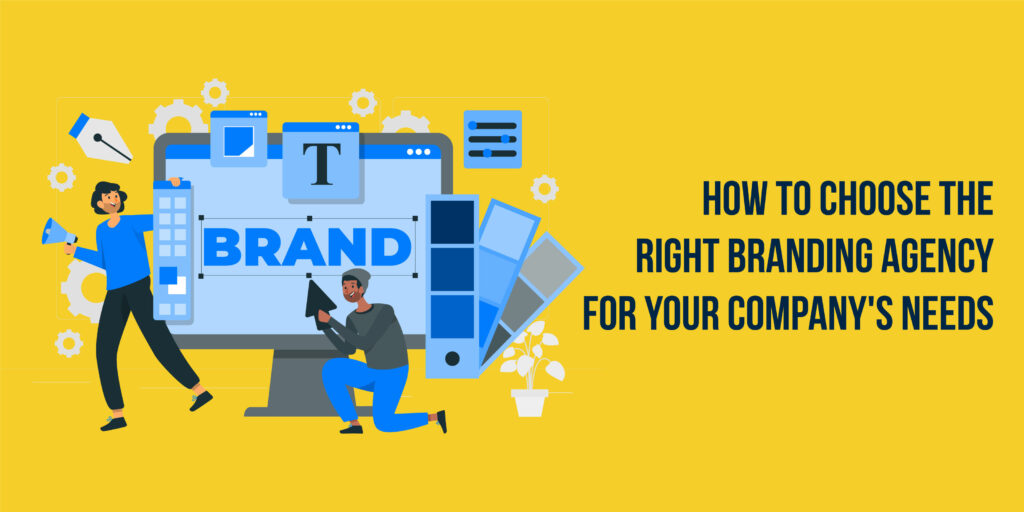
How to Choose the Right Branding Agency for Your Company's Needs
The right branding agency plays a pivotal role in shaping the success and growth of a company.
Who needs a branding agency?
Any business, organization, or individual looking to establish or enhance their brand identity, brand strategy, and overall brand presence can benefit from a branding agency. Whether you are a startup, small business, medium-sized enterprise, or a large corporation, a branding agency can play a crucial role in creating a strong and memorable brand that resonates with your target audience. Additionally, nonprofits, government agencies, and personal brands (such as influencers or public figures) can also benefit from the expertise and guidance provided by a branding agency to effectively communicate their message and values.
Factors to Consider When Choosing an Agency
When selecting the right branding agency for your company in India, it is crucial to consider several factors. Here are some essential steps to guide you in finding the best branding agency for your needs:
Research: Look for “branding agency India” online and explore various options. Focus on agencies that have experience working with companies in your industry and have a strong portfolio.
Ratings and Reviews: Check for reviews and ratings of the “best branding agency in India” on relevant platforms. Look for agencies with positive feedback and a track record of successful projects.
Expertise: Ensure that the “branding and marketing agency” you choose possesses the necessary expertise in both branding and marketing. A comprehensive approach is essential for achieving your business goals.
Startup Specialization: If you are a startup, prioritize agencies that have experience working with startups. Look for a “branding agency for startups” to find agencies that understand the unique challenges and requirements of new businesses.
Services Offered: Evaluate the range of “branding agency services” offered by different agencies. Choose one that aligns with your specific needs, such as logo design, brand strategy, social media marketing, etc.
Portfolio: Examine the portfolios of shortlisted agencies to assess the quality of their work. Look for consistency in branding, creativity, and how well they have executed previous projects.
Clientele: Consider the clients the agencies have worked with. If they have served reputable companies, it is a positive sign of their capabilities.
Communication: Effective communication is vital for a successful branding partnership. Ensure that the agency you choose is responsive and attentive to your requirements.
Budget: Obtain quotes from multiple agencies and compare their pricing. While cost is a factor, prioritize value and expertise over the cheapest option.
Compatibility: Look for a “branding agency” that understands your vision and values. A good fit in terms of company culture can lead to a more fruitful collaboration.
Importance of Branding: Remember the “importance of branding” throughout the process. Emphasize the significance of creating a strong brand identity that resonates with your target audience.
Meetings and Presentations: Schedule meetings with potential agencies to discuss your project. Evaluate their presentations and ideas for your brand.
Contracts and Agreements: Before finalizing the agency, review the terms and conditions of their contract. Ensure all essential aspects are covered.
Timeline and Deliverables: Discuss the project timeline and expected deliverables with the chosen agency to set clear expectations.
By following these steps and utilizing the provided keywords, you can identify the right branding agency in India that can effectively elevate your company’s brand identity and marketing efforts.
What are the 4 types of brands?
The four types of brands are:
a) Product Brands: These are brands that are associated with specific products. Product branding focuses on creating a distinct identity for individual products in the market. Examples include Coca-Cola, Nike, and Apple’s iPhone.
b) Service Brands: Service brands are associated with services rather than tangible products. They focus on establishing a reputation for providing excellent services. Examples include FedEx, Starbucks, and Hilton Hotels.
c) Corporate Brands: Corporate branding emphasizes the reputation and identity of an entire company. It aims to create a positive image for the organization as a whole. Examples include Google, Microsoft, and IBM.
d) Personal Brands: Personal branding revolves around individuals, typically public figures, influencers, or professionals. It focuses on creating a unique identity and reputation for the person. Examples include Oprah Winfrey, Elon Musk, and Gary Vaynerchuk.
Each type of brand requires different branding strategies and considerations, but they all contribute to shaping the perception and recognition of the entity they represent.



